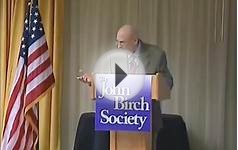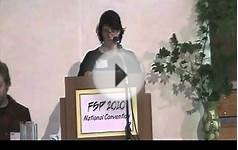 In Part One of this series, I provided a definition of socialism as a concept. In this installment I provide a brief historical perspective. Socialism’s birth is typically attributed to Karl Marx but, in fact, he wrote only a few pages about the concept in his well-known book, The Communist Manifesto. The original advocates of socialism criticized what they saw as the inequities of the Industrial Revolution. To remedy these perceived inequities they advocated a more egalitarian redistribution of wealth and a reordering of society into small utopian communities in which there would be no private property. Government ownership versus private ownership is at the heart of the differences between socialism and the free market.
In Part One of this series, I provided a definition of socialism as a concept. In this installment I provide a brief historical perspective. Socialism’s birth is typically attributed to Karl Marx but, in fact, he wrote only a few pages about the concept in his well-known book, The Communist Manifesto. The original advocates of socialism criticized what they saw as the inequities of the Industrial Revolution. To remedy these perceived inequities they advocated a more egalitarian redistribution of wealth and a reordering of society into small utopian communities in which there would be no private property. Government ownership versus private ownership is at the heart of the differences between socialism and the free market.
Socialistic thinking has been prevalent in Europe since the late 19th Century. Socialists throughout Europe dominated the universities, influenced the thinking of intellectuals, and encouraged the spread of socialism in every way possible. The same thing is now happening in American universities. The Fabian Socialists of England were especially effective in bringing democratic socialism to that country. They also influenced socialist thought in America. The Fabians sought to bring about the spread of socialism by gradual means, beginning with scholarly but flawed works on economic history, and using popular literature to influence public opinion. The left in America copied and have been applying the Fabian model for decades.
In the United States, socialism was prominent in the thinking of rationalistic New England and Northern reformers. For example, the first “free” public schools were established by Unitarian socialists who wanted to use them as a vehicle for undermining Christianity, changing America’s cultural values, and promoting the acceptance of socialism. This was a brilliant strategy for the left. No institution in America that has been more effective in promoting the acceptance of socialist ideals than the public school system. Ironically, Americans have bought so completely into public education that they do not even associate it with socialism.
In politics, the 1890s and 1900s saw the emergence and growth in America of the Socialist Party and the Socialist Labor Party. The “Progressives” of the early 20th Century were strongly influenced by socialism. Consequently, they looked to government to exercise more control over business, and adopted—to some extent—socialist programs. Intellectuals in politics used their influence to encourage the acceptance and spread of socialism during these years. For example, President Woodrow Wilson—the former college professor—advanced socialist thinking through his public oratory and government policies during World War I.








